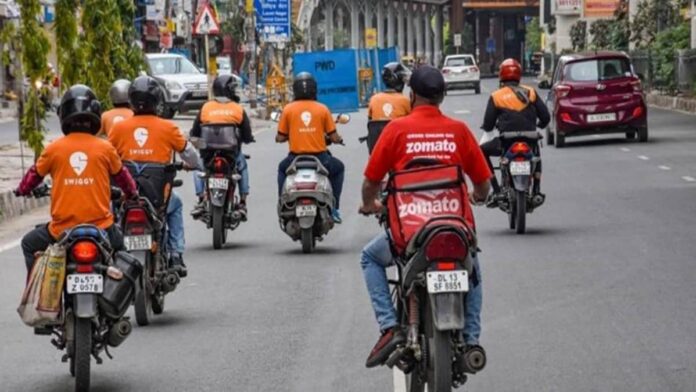Food delivery giants Swiggy and Zomato are expected to moderate discounts in their core business as competition in quick commerce — another segment they are present in — intensifies, say industry experts.
This shift reflects a strategic move towards sustainable pricing to balance profitability and maintain market leadership.
Discounting has been a key strategy to attract customers, but rising pressure in the q-commerce space is prompting a re-evaluation.
Also Read Retail Media 2025: The big leap or a bandwagon? EXPLAINER | How front-running distorts capital markets Zomato stock price is falling sharply- Here’s why… Weak demand to keep revenue growth of FMCG firms muted Also ReadSwiggy receives MCA approval for incorporation of ‘Swiggy Sport’
“Increased competition in quick commerce is pushing platforms like Swiggy and Zomato to rethink discounts and adopt tiered pricing strategies in food delivery,” said Mitesh Shah, co-founder of IPV and partner at Physis Capital.
While Swiggy and Zomato declined to comment, the recent moves by both platforms point to this transition. Over the past year, their free delivery radius under basic subscriptions has narrowed from 10 km to 7 km. The platforms are also tweaking discount structures to enhance delivery efficiency. By grouping orders for longer routes and offering discounts tied to cart value and distance, they aim to maximise the revenue per delivery partner ride. For example, smaller, long-distance orders attract discounts to enable batching, while shorter routes focus on larger cart values.
The optimisation benefits both platforms and customers, Shah said. “Tailored discounts based on order size and delivery region improve efficiency and resources, supporting better unit economics,” he said.
Additionally, Swiggy and Zomato are moving towards tier-based membership models. Swiggy’s premium ‘One Blck’ subscription, featuring perks like on-time delivery guarantees and enhanced discounts, signals a push to monetise loyal users. Zomato is reportedly exploring a similar approach. Such memberships aim to attract high-value subscribers while retaining casual users through targeted promotions and improved app experiences.
However, the entry of aggressive players like Magicpin as the third-largest online food delivery platform may slow this tapering of discounts. “Platforms can counter this competition through superior service, exclusive perks, and enhanced user experiences,” an analyst said.
Also ReadReliance Industrial Infrastructure Q3 Results: Standalone profit drops by 8.15% YoY to Rs 2.48 crore
The burden of discounts has largely fallen on restaurants,
» Read More


